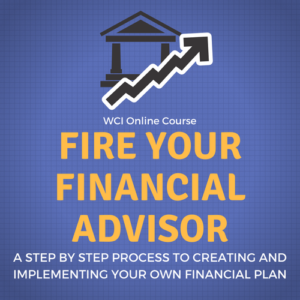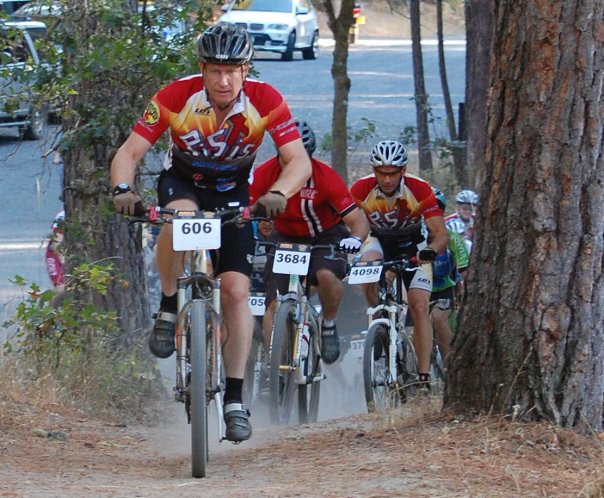A few years ago my son expressed interest in racing bicycles. I thought that would be a great way to spend time with him, and if I was going to be at all the races, I might as well race too. It would also help me take a few unwanted pounds off and get me into better shape.
We started racing part way through the year and learned the nuances of the sport. By the second year my youngest son became interested as well and bike racing truly became a family affair with my wife there cheering us on. That year all three of us won the Oregon Best All-Around Rider award for our age brackets. I raced in 63 races throughout the state while running a full time general surgery practice. Since racing season starts in March and ends in November, that’s averaging almost two races a week. I learned many lessons during those racing years that are applicable to life and finances that I’d like to share with you.
1: Learn the rules
When we first started racing, we didn’t understand all the rules and what it takes to score points for the All-Around category, so we were basically just riding our bikes and hoping to finish highly placed. As we studied the rules and tactics of racing, our effectiveness in acquiring points increased tremendously, then we were really racing. It turns out that not all races are created equal. Some are worth more points than others. Some are just for fun. Understanding the rules of earning points made all the difference in our success of winning our age brackets.
Similarly, in finance, it is essential to know the rules if you expect to win the game. You need to know how to use your 401(k) and IRA to maximize your deposits and growth. Learn where to find the best tax deductions, when investments can be made and how much can be invested, and understand what types of investments produce what kinds of returns. It is crucial to know how you are being charged for these investments. Your results will improve as your knowledge of the game improves.
2: Scout the race
To prepare for each race, we would arrive a day early so we could ride the course in advance. In doing so, we identified the hazards in the course, learned where to put on the gas and where to hold back and identified land marks that clued us in on the distance to the finish line.
One mountain bike race I was in had a very tricky spot. I knew a lot of racers would lose time when they reached that particular spot. So I spent a few hours riding through that stretch until I could do it with ease. Having practiced that tricky stretch I gained time on every racer who arrived at that location unprepared.
When investing money in a new venture, it is vital that you understand it fully. If you can’t fully explain it in a couple of sentences, you are not familiar enough with the investment to be risking your money. Invest in what you know and avoid what you don’t. I have fallen into this trap of investing in something exciting, that I really didn’t fully understand, but I trusted the management and I thought it would do well. Unfortunately, many of those investments didn’t end well. Learn the lay of the land before running an investment race.
3: Don’t try to win in the first mile
The race is long. If the finish line is 40 miles away, you need to be in the front of the pack at mile 40 to win. You will not be the winner if you are the first rider to cross the one mile marker. Those are often the guys who burn out and get passed near the end of the race by those who raced controlled for the entire 40 miles. You must pace yourself to reach the finish line strong.
Often when we invest, we are impatient. If after only one year we don’t see big profits, we often sell our old investments and buy some new ones hoping to speed up attaining our riches. We begin to take risks we don’t need to take. After all, it is a 40 year race. We only need to reach our retirement goal upon retiring in 40 years. Risking your future wealth to finish strong in the first year could be hazardous to your wealth. Learning patience and the ability to pace ourselves is crucial.
4: Flat tires happen
There will always be the risk of a flat tire or other break down during a bike race. We take precautions to avoid them and minimize the time lost when it does happen. But we must realize mechanical problems happen to everyone, we just don’t know when it will hit us.
I remember a race that I was super prepared to win. I knew the course well and was in good shape. It was the first race of the season and I had trained all winter to win this particular race. I knew the other racers would not be in their best shape yet and this was my chance. I was doing so well. Then about 1/3 of the way through the race I got a flat tire.
I carry all the needed equipment on my bike to deal with a flat, but I wasn’t ready to deal with the disappointment. When I pulled over and watched all the riders go by me, I felt as deflated as my tire. What should have been a 3-5 minute repair, took me 15 minutes. I felt like I had lost the race and didn’t put in the effort needed to regain my place on the podium. Had I not lost heart, I might have fixed the flat quickly and still won that race.
Disappointments happen with our investments as well. The market can crash. A company could go out of business. Someone may embezzle funds. A new competitor could leave you in the dust. It is important to understand that these things are expected in investing. It is not a matter of if they will happen, but when they will happen and how you will deal with them when they do. We need to be prepared to deal with investment casualties and move on quickly. There are more investments to make and this one bump will not stop us from reaching our overall goal. It is a long race.
5: You must be present to win
I was not the fastest racer in Oregon, yet I ended the season winning the Best All-Around Rider award. Winning this title requires a racer to participate in multiple kinds of races, both on and off-road. Being the fastest isn’t necessarily needed. Earning the most points by placing in the top 15 riders each race inches you closer and closer to the goal. Many who were a lot faster than me, didn’t show up to race, and therefore didn’t earn any points. If all the fast guys showed up, I would be in the back of the pack and earn fewer points. But since often I showed up to race and they didn’t, I finished well. You must play the game to win the game.
This is the way it is with investing. If you sit on the sidelines, waiting for the market to drop before you invest, you are not playing the game. You can’t win a race if you stay home and watch TV. Get in the game. Even if what you do is not the absolute best option you could have chosen, it is a better option than doing nothing. Since you can’t time the market, just get in the market and go for the ride.
There are many other lessons I learned while racing and I will be covering more of them in my Facebook Page daily videos beginning later this month.
So what have you learned from these lessons? Did one of them strike a chord with you? Do you have a great story we could all learn from concerning one of these lessons? Let us know in the comments below.
To follow my Facebook videos, click here to go to my page, then select Like.
Race well.


Coming from another racer – CONGRATS on the award and great post!
Thanks Accidental FIRE for the comment. It is nice to find a kindred spirit. I don’t often run into another bicycle racer.
Personally, I would just like to participate in bicycle races for the fun of it; otherwise, very good article.
That’s how I felt when we started. Then we learned the rules and found out we could win. Then my competitive nature took over. The next year we only raced to win the mountain bike trophy, not the all around, which was a much easier task. Go find some races near you and race for the fun and fitness. It really was a lot of fun. Especially if you involve the whole family. There were lots of families at the races. They also divide you into skill levels so beginners don’t race against the pros. Best of luck.